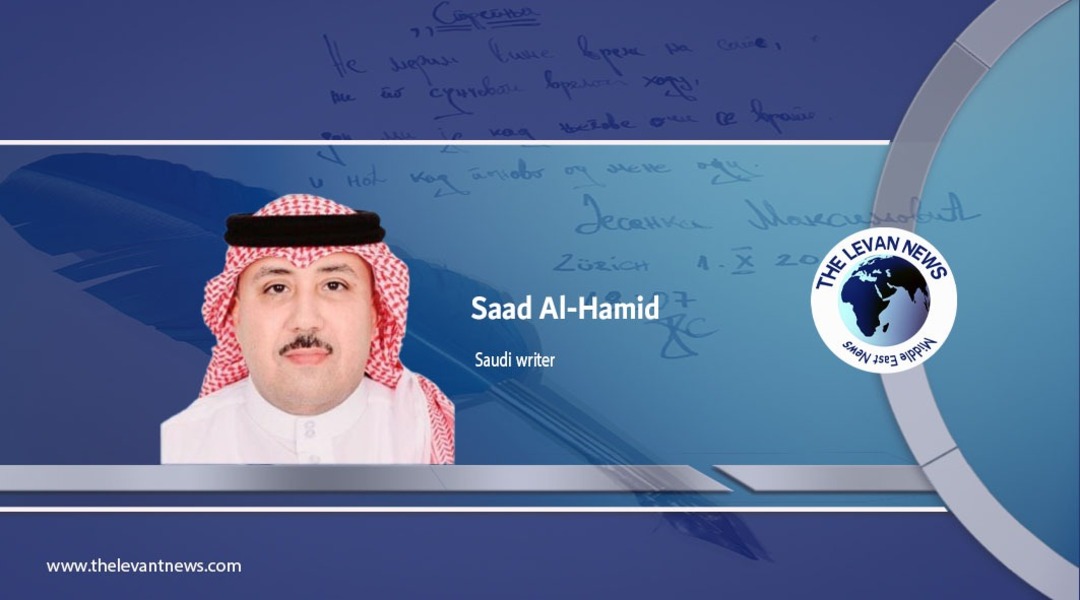-
Lebanese general elections.. Return or fall?

Observers see the upcoming Lebanese general elections as an escape to make changes in Lebanon through democracy and fix Lebanon's relations with other Arab countries by respecting the constitution, judicial independence, state sovereignty and international laws.
This may change a little in Lebanon whose sovereignty was flagrantly violated because of the power discrepancies between its political forces and ruling parties in addition to Hezbollah completely highjacking the state institutions by extending its influence over this state for the sake of Tehran and increasing the unprecedented economic suffering of Lebanon where more than 80% of the population is below the poverty line.
Many Lebanese people blame Hezbollah for not taking steps to make reforms and to investigate the port explosion that killed 200 people, injured 6,000 and ruined many businesses, the long period it took to form the last government and its weapons which Hezbollah and the government claim to face the Israeli occupation of the southern Lebanese border.
The current political class finds in the elections an opportunity to recycle itself and many view the elections as an opportunity to challenge the authority with many political and religious calls not to boycott them because there is a growing fear that Hezbollah will have the most power, (especially after the Sunni supporters of former PM Saad Hariri has so far boycotted those elections), Lebanon's isolation will increase and it might reach a no-return point because the current political system insists on sticking to confessionalism which makes the elites of every sect control the country's resources. Therefore, these elections may reproduce the same authority and give it domestic and international legitimacy.
For example, the majority led by Hezbollah can further alienate the GCC which was once a major investor in many Lebanese sectors and was facing Iran's influence and its expansionist projects in the country. After the 17 October Protests which demanded the resignation of this political class that the revolution held it responsible for the economic deterioration and corruption. The protests declined after an economic collapse the World Bank described as the worst in the world since 1850.
The horrific explosion of Beirut Port in August 2020 worsened the situation and angered the Lebanese people after more than two hundred people were killed and thousands were injured. Initial investigations revealed the explosion was because of negligence and unsupervised storage of dangerous materials with the state's inability to provide the most basic services, including fuel, electricity and health. The state has not taken any concrete measures to alleviate their suffering. This is happening in the absence of a political consensus on any radical reforms to obtain international support and the elections are now held amid great ambitions for change.
Perhaps the turnout of expatriates to vote to help change their country is something positive amid the conflict between the electoral blocs of Hezbollah, Amal Party and the Free Patriotic Union to win parliamentary seats and use intimidation tactics against other candidates. The parties of the current authority pay money to attract voters. Instead of having an actual face-off in the elections, the Future Movement's withdrawal allowed Hezbollah and its supporters to infiltrate even more since the abstention of many Sunnis help Hezbollah raise its chances to win more seats.
Financial Times said that whatever the results, negotiations to form a new government will probably take time and economic recovery will be slow. In addition, Hezbollah is fighting, by all means, to obtain the largest possible bloc because the new parliament will choose the next president. However, will the international community and its institutions remain silent in the face of this chaos until Hezbollah achieves what it wants in these elections at the expense of Lebanon's return to its people, its Arab identity, its stability and its security?

BY: Saad Al Hamid
You May Also Like
Popular Posts
Caricature
BENEFIT Sponsors BuildHer...
- April 23, 2025
BENEFIT, the Kingdom’s innovator and leading company in Fintech and electronic financial transactions service, has sponsored the BuildHer CityHack 2025 Hackathon, a two-day event spearheaded by the College of Engineering and Technology at the Royal University for Women (RUW).
Aimed at secondary school students, the event brought together a distinguished group of academic professionals and technology experts to mentor and inspire young participants.
More than 100 high school students from across the Kingdom of Bahrain took part in the hackathon, which featured an intensive programme of training workshops and hands-on sessions. These activities were tailored to enhance participants’ critical thinking, collaborative problem-solving, and team-building capabilities, while also encouraging the development of practical and sustainable solutions to contemporary challenges using modern technological tools.
BENEFIT’s Chief Executive Mr. Abdulwahed AlJanahi, commented: “Our support for this educational hackathon reflects our long-term strategic vision to nurture the talents of emerging national youth and empower the next generation of accomplished female leaders in technology. By fostering creativity and innovation, we aim to contribute meaningfully to Bahrain’s comprehensive development goals and align with the aspirations outlined in the Kingdom’s Vision 2030—an ambition in which BENEFIT plays a central role.”
Professor Riyadh Yousif Hamzah, President of the Royal University for Women, commented: “This initiative reflects our commitment to advancing women in STEM fields. We're cultivating a generation of creative, solution-driven female leaders who will drive national development. Our partnership with BENEFIT exemplifies the powerful synergy between academia and private sector in supporting educational innovation.”
Hanan Abdulla Hasan, Senior Manager, PR & Communication at BENEFIT, said: “We are honoured to collaborate with RUW in supporting this remarkable technology-focused event. It highlights our commitment to social responsibility, and our ongoing efforts to enhance the digital and innovation capabilities of young Bahraini women and foster their ability to harness technological tools in the service of a smarter, more sustainable future.”
For his part, Dr. Humam ElAgha, Acting Dean of the College of Engineering and Technology at the University, said: “BuildHer CityHack 2025 embodies our hands-on approach to education. By tackling real-world problems through creative thinking and sustainable solutions, we're preparing women to thrive in the knowledge economy – a cornerstone of the University's vision.”
opinion
Report
ads
Newsletter
Subscribe to our mailing list to get the new updates!






















